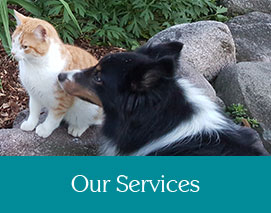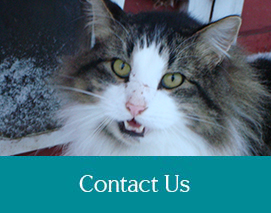Library
-
House training is best accomplished with a consistent program that relies on supervision to prevent mistakes and positive reinforcement for elimination in designated locations. Though house training can be time-consuming, when done properly, the foundational training will last a lifetime.
-
Pain can be difficult to detect in older dogs. It is important for dog owners to recognize subtle signs of pain in their dog, such as slowing down on walks, unwillingness to play, reluctance to sit or stand, limping or weight shifting, and sensitivity to touch on being picked up. If any of these behaviors are observed, your dog should be evaluated by your veterinarian and a pain management plan devised.
-
Training a dog to understand human communications is easier when we consider how our tone and volume influence our message. Verbal commands will be interpreted differently by your dog depending on how they hear it. Just remember, it’s not just what you say….it’s how you say it.
-
With the elegance of a deer, the Ibizan Hound can leap great heights from a standstill. Unlike most sight hounds, the Ibizan Hound usually barks when chasing. She is fast, sweet, and beautiful, yet few people have ever met one.
-
These hardworking dogs are tough and energetic, but don't be fooled – they are people-dogs. Cheerful, friendly, inquisitive and playful, they are definitely happiest when they have a job to do, such as playing ball, herding, agility and obedience activities.
-
While dogs do not speak the human language, they still communicate quite effectively and tail wagging enhances their ability to communicate. Position and speed of tail wagging takes on different meanings. Interestingly, dogs do not talk to themselves. They will wag their tails in front of humans or other dogs, but they do not wag when alone!
-
Using desensitization and counterconditioning, a behavior modification technique, can change a pet's negative emotional response to triggers. The technique is well suited for pets experiencing fear, frustration, or hyperarousal. Desensitization must be done slowly and systematically to avoid inadvertently sensitizing the pet.
-
Irish Red and White Setters are joyful and love to have fun. They will run with you, go for hikes, play with the kids, and are up for all sorts of activities like agility, flyball and obedience. Then they'll settle in the comfort of the house to chill with the family.
-
The Irish Setter is highly energetic, easily excited, and exuberant about anything that he senses is about to happen. The prospect of going outdoors, going somewhere in the family car, or even having his food dish filled, sets him off into leaps and bounds of pleasure. He is also quite affectionate, gentle and sweet-natured.
-
He is not called the daredevil of dogdom for nothing. The Irish Terrier is as fiery in personality as he is in color. He is not great with other dogs, but if you want a one-dog entertainment center, you just may have found your match.



